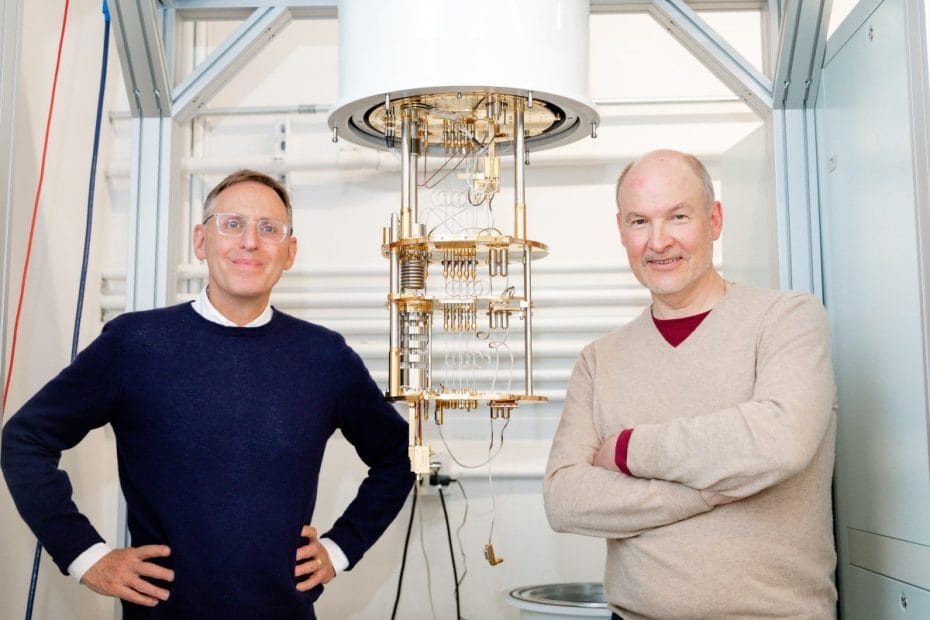SEEQC secures $30 million in new funding, believes chips are key to building useful quantum computing
Nvidia CEO Jensen Huang may have said that “very useful quantum computers” may be 20 years away, but his company is also hedging its bets beyond classic chips with investments and partnerships in the field.
Now, one of Nvidia's partner companies in quantum development is announcing funding. Quantum computing startup SEEQC has raised $30 million in funding, co-led by Booz Allen Ventures and Japanese and European venture capital firm NordicNinja, with new backer SIP Capital and some existing investors also participating. “It’s a combination of financial, geographic and strategic strengthening,” SEEQC CEO John Levy said of the Series A extension.
SEEQC is part of an emerging category of start-ups working on how best to harness classical computing to manage quantum processors. This is critical to managing large numbers of qubits, the basic unit of quantum computing, while making the hardware compatible with data center and enterprise needs.
SEEQC – whose name stands for “Scalable, Energy-Efficient Quantum Computing” – pronounced “seek” – believes the key to reducing the complexity of today's quantum hardware is to have chips that can power all the core functions of a quantum computer. This makes it possible, for example, to control a large number of qubits with a single cable, something SEEQC believes is urgently needed.
There's no denying that current prototypes often look clunky, like regular computers from the early days of IT. Levy thinks it's “fantastic” that Google announced that its Willow quantum chip has error correction capabilities, but he couldn't help but notice the amount of cables involved.
“We need to see these (types of announcements), but we also need from a systems engineering perspective the ability to solve problems like cabling issues, speed, latency, cost, the traditional problems you need to be able to solve to build large systems. Unless We do this, otherwise we won’t be able to truly scale enterprise-scale quantum data centers,” Levy said.
The rapid development of artificial intelligence has highlighted the urgent need for more energy-efficient data centers, and quantum can make this a reality, while unlocking new applications, such as accelerating the development of new materials and new drugs.
This explains why German chemicals company BASF recently joined the SEEQC-led, UK-backed QuPharma project to work with Merck to explore how quantum computing can speed up the drug discovery process. “These companies know quantum is going to be core to their business,” Levy said.
It also explains why Merck's corporate venture capital arm, M Ventures, invested in other investors such as SEQT Ventures and LG Technology Ventures in 2020, ultimately bringing SEQC's total backing to $22.4 million ahead of the latest funding round.
At the same time, SEEQC also formed a partnership with Nvidia. The collaboration, announced in 2023, aims to create a “fully digital, ultra-low latency chip-to-chip link between quantum computers and GPUs” that, when created, will be compatible with all quantum computing technologies.
The new funding will help the startup accelerate the commercial rollout of its chips and increase its capabilities. But SEEQC is already further along than you might expect for a startup founded in 2019, in large part because it's a spinoff of chip company Hypres, itself founded by former employees of IBM's superconducting electronics division of.
“We actually started with mature technology, our own chip foundry – we operate a very specialized chip foundry for the chips we make – IP, and an entire ultra-large network built primarily through U.S. government users The core team of Guidance Systems,” Levy said.
Since then, the company's team has tripled in size and is partially headquartered in London, England, and Naples, Italy, where it built pre-spinoff first versions of its chips; but primarily in Elmsford, New York. Germany, where the company currently plans to expand its chip foundry.
Beyond the promise of quantum, this also resonates with the growing need for chip supply chains that can withstand geopolitical tensions, especially those involving China.
Different companies are approaching this problem from different angles, such as photonics, silicon-based chips, and trapped ion qubits. Which approach will prevail remains to be seen, but Levy firmly believes that thinking beyond qubits is key. “We need to have an overall system architecture that can really get us to where we need to be, and the chip will be at the heart of that.”








